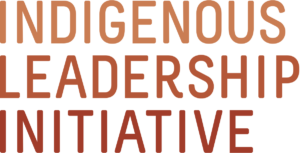Indigenous Guardians Network Seeks About $500 Million Investment Over Five Years
INDIGENOUS LEADERSHIP INITIATIVE
Ottawa: Tues. Oct. 3, 2016: The Indigenous Leadership Initiative (ILI) is asking the Federal Government to help Indigenous Nations and communities address major challenges by committing roughly $500-million over five years in a partnership to create a national network of Guardian programmes.
The money would be new funding and would not detract from budget promises for other Indigenous issues. It would be phased in starting with $26 million in 2017. In December, 2015, the Assembly of First Nations passed a motion supporting the pursuit of a Guardians initiative.
“A National Indigenous Guardians Network represents a powerful opportunity for the Government of Canada to fulfill its 2015 Speech from the Throne promise to forge renewed, Nation-to-Nation and Inuit-to-Crown relationships with Indigenous Peoples,” said Miles Richardson, ILI Sr. Advisor.
“As Indigenous community leaders from across the country gather in Ottawa this week to discuss a way forward for Guardians programmes, we respectfully call on the Government of Canada to commit to this programme in its 2017 budget.”
“We are making this request because we know it works – Guardians are a proven success,’’ said Stephen Kakfwi, ILI Sr. Advisor “This proposal is the result of much planning, research and consultation, and we are encouraged that its merits are being recognized, as demonstrated by the interest already received from the government, from all parties, and a broad spectrum of Indigenous and non-Indigenous groups.”
Already more than 30 Indigenous communities in Canada have established or are pursuing guardian programmes. These combine the strengths of their own systems of governance, cultures and knowledge with western science to protect and monitor the land and marine areas that have sustained them for millennia, but are now under threat from resource development and environment pressures.
There are, however, more than 700 Indigenous communities in Canada. Most are in remote, sparsely populated boreal, Arctic or other wilderness areas, or along Canada’s coasts and have few financial resources. Their challenge is to access the funding for training and capacity building in order to fulfill their role as stewards of their lands and be enabled to be true partners in the prosperity of Canada.
The National Indigenous Guardians Network is an Indigenous-led and made-in-Canada initiative. In Australia there is a hugely successful ten-year AUD $618-million federal “Working on Country” program, which has created a network of 109 Indigenous Ranger groups managing more than 1.7 million sq. kms. of land and sea. That initiative has shown the proven benefits of a nationally-funded initiative.
Benefits and impact of the Australian program are well-documented. Studies indicated every $1 invested generates $3 in social, economic and cultural value by lowering unemployment, reducing welfare payments, lowering crime rates and violence against women, improving public health and creating a greater sense of well-being in Indigenous communities.
Similar results are seen in Canada. A case study underway of two emerging Indigenous Guardian programs in Canada’s Northwest Territories indicates they already deliver about $2.50 of social, economic, cultural and environmental benefits for every $1 invested. With support from a national network, researchers expect the value could increase to up to $3.70 for each dollar of investment.
“The National Indigenous Guardians Network proposal is a perfect fit with federally stated mandates: to create training opportunities and good quality jobs, particularly among youth; to promote reconciliation with Indigenous Peoples; and to address key priorities such as climate change and getting products to market sustainably,” said Valérie Courtois, ILI Director.
Establishing this Network would also:
Be consistent with the UN Declaration on the Rights of Indigenous Peoples standard of Free, Prior and Informed Consent (FPIC), which the Federal Government has committed to meet.
Respond to the Truth and Reconciliation Commission’s calls to action on education; training for young Indigenous Canadians; eliminating gaps in education, employment and health outcomes; developing culturally appropriate curricula; and corporate sector support for reconciliation.
Reduce unemployment, create futures for Indigenous youth, and provide positive role models of active community members rooted in their cultures and fulfilling their cultural responsibilities.
ILI projects that within the first five years at least 200 communities could establish Guardian programs. These would be run by trained coordinators, each with a small core team of Guardians, and would participate in a Guardian Network that provides ongoing access to training and support over time.
Guardians provide the ability for Nations and communities to engage in a much more meaningful way with governments, industry and others. This in turn creates a much better context for the application of FPIC.
Media contact: Sean Durkan. 613-851-2151. Sean.sda.inc@rogers.com
For more on the Australian Programme: Patrick O’Leary. Conservation Partnerships Manager, Outback to Oceans Australia. The Pew Charitable Trusts: 011 61 417063917. poleary@pewtrusts.org


